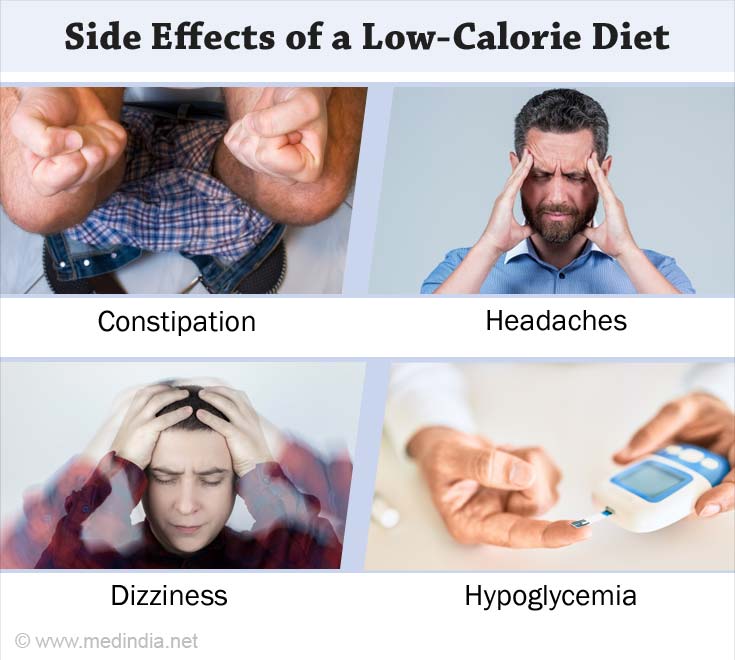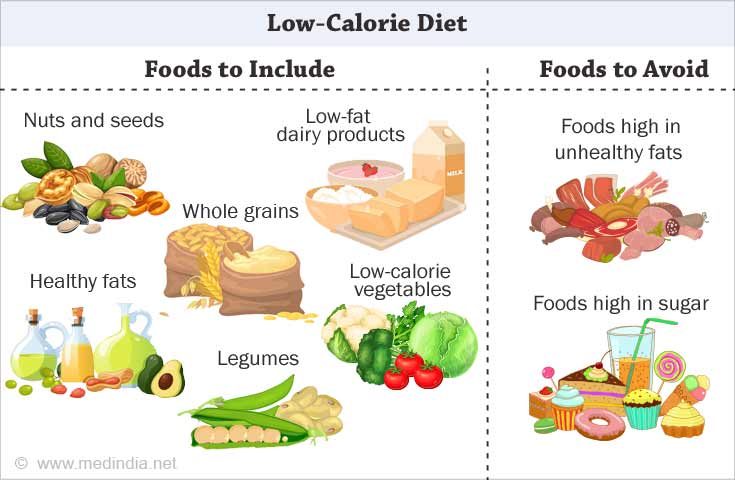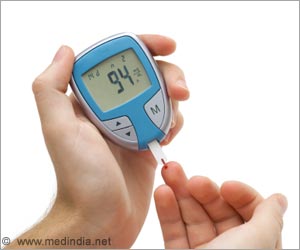- Zubrzycki, A., Cierpka-Kmiec, K., Kmiec, Z., & Wronska, A. (2018). The role of low-calorie diets and intermittent fasting in the treatment of obesity and type-2 diabetes. J Physiol Pharmacol, 69(5), 663-83. - (https://pubmed.ncbi.nlm.nih.gov/30683819/)
- Quimby, K. R., Sobers, N., George, C., Greaves, N., Browman-Jones, F., & Samuels, T. (2021). Implementation of a community-based low-calorie dietary intervention for the induction of type-2 diabetes and pre-diabetes remission: a feasibility study utilizing a type 2 hybrid design. Implementation Science Communications, 2(1), 1-12. - (https://pubmed.ncbi.nlm.nih.gov/34454636/)
- Juray, S., Axen, K. V., & Trasino, S. E. (2021). Remission of Type 2 Diabetes with Very Low-Calorie Diets-A Narrative Review. Nutrients, 13(6), 2086. - (https://doi.org/10.3390/nu13062086)
- What's a low-calorie diet? - (https://www.diabetes.org.uk/guide-to-diabetes/enjoy-food/eating-with-diabetes/whats-your-healthy-weight/low-calorie-diets#:~:text=We %20recommend%20people%20with%20type,refined%20grains%20like%20white%20bread.)
- Román-Pintos, L. M., Villegas-Rivera, G., G.Cardona-Muñoz, E., RodrÃguez- Carrizalez, A. D., Moreno-Ulloa, A., Rubin, N., & Miranda-DÃaz, A. G. (2017). Very Low- Calorie Diets in Type 2 Diabetes Mellitus: Effects on Inflammation, Clinical and Metabolic Parameters. In (Ed.), Diabetes and Its Complications. IntechOpen. - (https://doi.org/10.5772/intechopen.72167)
- Research Spotlight – Putting Type 2 Diabetes into Remission - (https://www.diabetes.org.uk/research/research-round- up/research-spotlight/research-spotlight-low-calorie-liquid-diet)
- Diabetes diet: Create your healthy-eating plan - - (https://www.mayoclinic.org/diseases-conditions/diabetes/in-depth/diabetes-diet/art-20044295)
- Diabetic Diet - (https://medlineplus.gov/diabeticdiet.html)
What is Reduced Calorie Diet?
Type 2 diabetes is a metabolic disorder resulting in peaked blood glucose levels. The primary therapeutic goal in diabetes is to control blood sugar levels, which can be achieved with pharmacological and non-pharmacological treatment. Non-pharmacological method of diabetes management includes regular physical activity and a healthy dietary pattern.
Calorie restriction is decided on factors such as an individual’s energy requirements, gender, age, co-morbidities present, physical activity levels, and other accompanying treatments.
Low-calorie diets are planned with about 25% to 30% calorie reduction from the daily diet. The diabetes diet should be gleaned from principles of a balanced diet that includes 45% to 55% carbohydrates, 25% to 30% of fat, and 15% to 25% of proteins, and should also provide an energy deficit of 500 to 800 calories a day.(1✔ ✔Trusted Source
Zubrzycki, A., Cierpka-Kmiec, K., Kmiec, Z., & Wronska, A. (2018). The role of low-calorie diets and intermittent fasting in the treatment of obesity and type-2 diabetes. J Physiol Pharmacol, 69(5), 663-83.
Go to source)
What are the Benefits of a Calorie-Reduced Diet?
Calorie-reduced diet has been looked into for many years to bring its benefits and cons to the limelight. Several benefits have been reported by studies concerning metabolic disorders like Diabetes.

High protein low calorie foods have been known to aid in weight loss, stave off / regain lost weight, improve satiety, preserve lean body mass, and sustained energy expenditure(1✔ ✔Trusted Source
Zubrzycki, A., Cierpka-Kmiec, K., Kmiec, Z., & Wronska, A. (2018). The role of low-calorie diets and intermittent fasting in the treatment of obesity and type-2 diabetes. J Physiol Pharmacol, 69(5), 663-83.
Go to source).
A study investigated the effect of community-based low-calorie dietary intervention among people with diabetes and pre-diabetes. The participants were provided an 840kcal diet, vegetables good for diabetes like non-starchy vegetables and non-caloric beverages were included in the diet. The results revealed that there was a mean weight loss of 6 kg (5.7 kg in women and 7.9 kg in men), reduction of Hemoglobin A1c, and fasting blood glucose(2✔ ✔Trusted Source
Quimby, K. R., Sobers, N., George, C., Greaves, N., Browman-Jones, F., & Samuels, T. (2021). Implementation of a community-based low-calorie dietary intervention for the induction of type-2 diabetes and pre-diabetes remission: a feasibility study utilizing a type 2 hybrid design. Implementation Science Communications, 2(1), 1-12.
Go to source).
According to research low calorie diets have shown to be fruitful in the reversal of diabetes, meaning there is no need to take medications to control blood sugar levels. Results from the Look AHEAD study found that intensive lifestyle intervention with a low-calorie diet, regular exercise, and behavioral changes reported partial and complete reversal of diabetes in 12 months. People with diabetes who achieved remission maintained their lost weight post the study as well(3✔ ✔Trusted Source
Juray, S., Axen, K. V., & Trasino, S. E. (2021). Remission of Type 2 Diabetes with Very Low-Calorie Diets-A Narrative Review. Nutrients, 13(6), 2086.
Go to source, 4✔ ✔Trusted Source
What's a low-calorie diet?
Go to source).
A very low-calorie diet (not more than 800 calories/day) has been extensively studied to be beneficial in the treatment of diabetes. A group of researchers found that following a very low-calorie diet (about 700 calories a day) for at least 6 months was linked to an increase in plasma insulin levels, preservation of beta-cell function and the duration of diabetes was reduced. A decrease in pancreas and liver fat content was also observed due to the weight loss elicited. Very-low calorie diet also helps in reducing oxidative stress thereby aiding reductions in fasting glucose levels, LDL cholesterol, and total cholesterol levels. The improvement in oxidative status was linked to an increase in superoxide dismutase and lowered levels of malondialdehyde(5✔ ✔Trusted Source
Román-Pintos, L. M., Villegas-Rivera, G., G.Cardona-Muñoz, E., RodrÃguez- Carrizalez, A. D., Moreno-Ulloa, A., Rubin, N., & Miranda-DÃaz, A. G. (2017). Very Low-
Calorie Diets in Type 2 Diabetes Mellitus: Effects on Inflammation, Clinical and Metabolic Parameters. In (Ed.), Diabetes and Its Complications. IntechOpen.
Go to source).
How Calorie-Reduced Diet May Reverse Diabetes?
Calorie reduction plays a major role in the reversal of diabetes. Partial reversal of diabetes is when fasting sugar levels are between 100 to 125 mg/dL and glycated hemoglobin (HbA1c) is less than 6.5% whereas, a complete reversal of diabetes is when fasting sugar levels are less than 100 mg/dL and HbA1c is less than 5.7%. Both of these require at least 12 months of the absence of treatments to be termed remission. A calorie-reduced diet like a low and very-low-calorie diet is useful in the reversal of diabetes(3✔ ✔Trusted Source
Juray, S., Axen, K. V., & Trasino, S. E. (2021). Remission of Type 2 Diabetes with Very Low-Calorie Diets-A Narrative Review. Nutrients, 13(6), 2086.
Go to source, 5✔ ✔Trusted Source
Román-Pintos, L. M., Villegas-Rivera, G., G.Cardona-Muñoz, E., RodrÃguez- Carrizalez, A. D., Moreno-Ulloa, A., Rubin, N., & Miranda-DÃaz, A. G. (2017). Very Low-
Calorie Diets in Type 2 Diabetes Mellitus: Effects on Inflammation, Clinical and Metabolic Parameters. In (Ed.), Diabetes and Its Complications. IntechOpen.
Go to source).
A reduced calorie diet poses to be beneficial for type 2 diabetes for its capacity to promote weight loss. Consuming low-calorie foods also helps in the reduction of fat mass, turns down high blood glucose levels, and stimulates beta cell function and insulin sensitivity. By modulating cytokines and adipokines, inflammation may also be reduced with a calorie-reduced diet(6✔ ✔Trusted Source
Research Spotlight – Putting Type 2 Diabetes into Remission
Go to source).
What are the Side Effects of a Low-Calorie Diet?
Calorie restriction diets may carve a few side effects such as constipation, headaches, and dizziness. People with diabetes may also experience frequent hypoglycemia (low blood glucose levels) with low-calorie diets, especially people on insulin management(4✔ ✔Trusted Source
What's a low-calorie diet?
Go to source).
The chances of diabetes coming back may be high when a healthy lifestyle (proper diet and physical activity) is not practiced in the long run post the remission stage(6✔ ✔Trusted Source
Research Spotlight – Putting Type 2 Diabetes into Remission
Go to source).

A long-term study that assessed the clinical effects of a very low-calorie diet among diabetes participants for 5 years reported that at the end of the intervention period most of the weight lost was regained. Hence calorie-reduced diets seem safe to perform but may be difficult to practice for some people(5✔ ✔Trusted Source
Román-Pintos, L. M., Villegas-Rivera, G., G.Cardona-Muñoz, E., RodrÃguez- Carrizalez, A. D., Moreno-Ulloa, A., Rubin, N., & Miranda-DÃaz, A. G. (2017). Very Low-
Calorie Diets in Type 2 Diabetes Mellitus: Effects on Inflammation, Clinical and Metabolic Parameters. In (Ed.), Diabetes and Its Complications. IntechOpen.
Go to source).
Foods to Include and Avoid
The foods included in the low-calorie diet should be diabetes-friendly.
- Low-calorie vegetables especially non-starchy vegetables like tomato, spinach, cabbage, broccoli, cauliflower, and many more can be included.
- Whole grains (like whole wheat, millets, quinoa, and brown rice), legumes (like beans and peas), nuts, and seeds are great choices of fiber for diabetics.
- Low-fat dairy products like milk, curd, yogurt, and paneer can be included in the diet.
- Healthy fats for people with diabetes will include olive oil, peanut oil, canola oil, avocado, nuts, and seeds.
- Foods high in unhealthy fats like sausage, butter, beef, margarine, organ meats, and processed foods are not advisable.
- Foods high in sugar like chocolates, cake, ice cream, and sweetened beverages should be avoided by diabetic patients.
- Some calorie-reduced meal plans also provide meal replacements to meet the target calories(7✔ ✔Trusted Source
Diabetes diet: Create your healthy-eating plan
Go to source, 8✔ ✔Trusted Source
Diabetic Diet
Go to source).

Conclusion
Suggesting a calorie-reduced diet for diabetic patients may be a good treatment option as it exhibits beneficial effects in diabetes management. Though calorie-reduced diets shine several benefits to people with diabetes it is important to consult the physician and dietitian before choosing a reduced calorie diet to prevent side effects.












